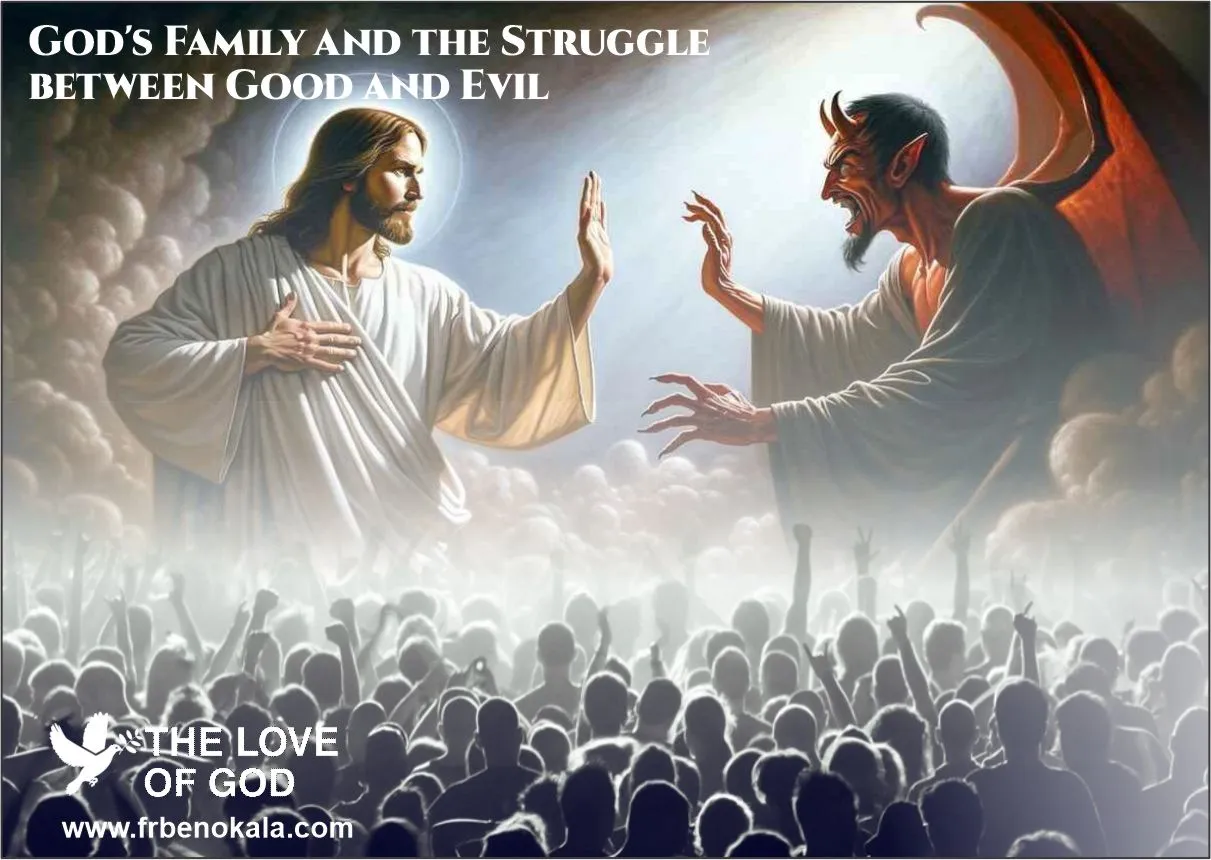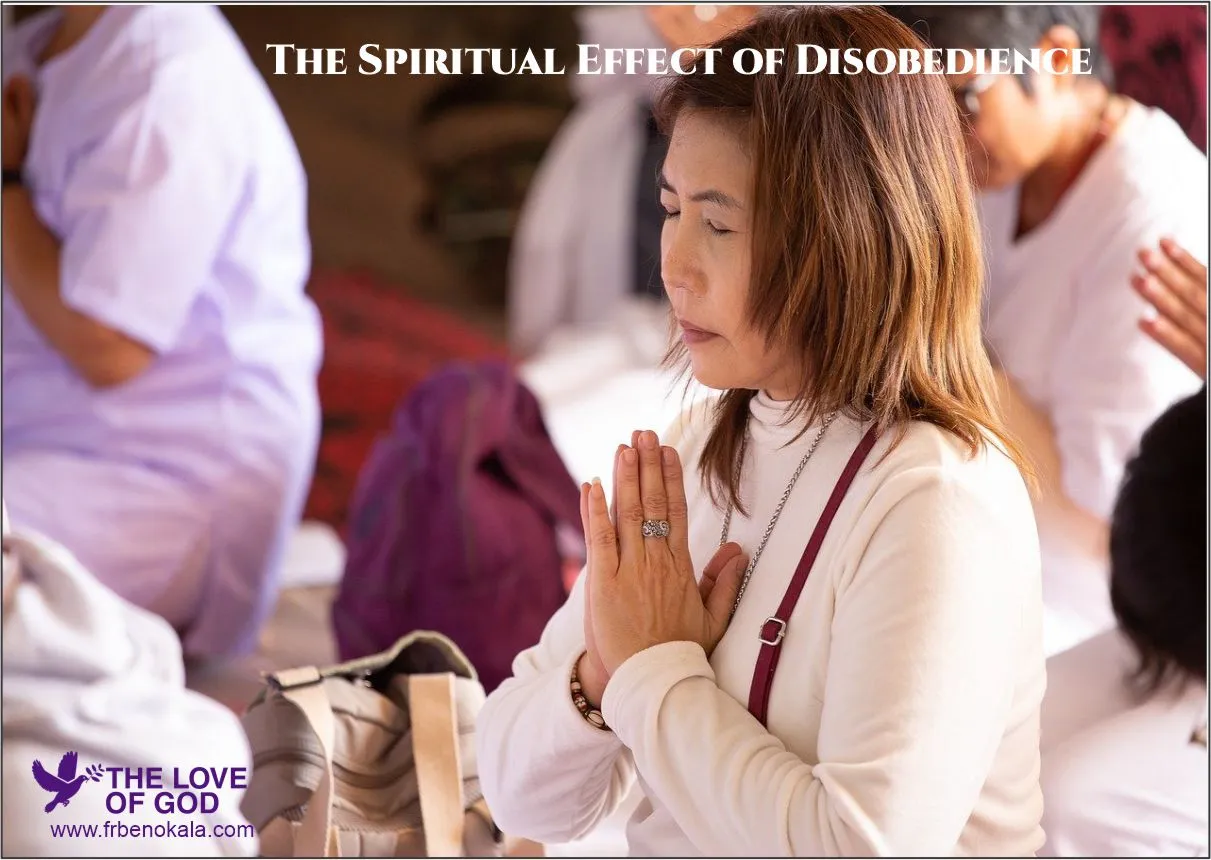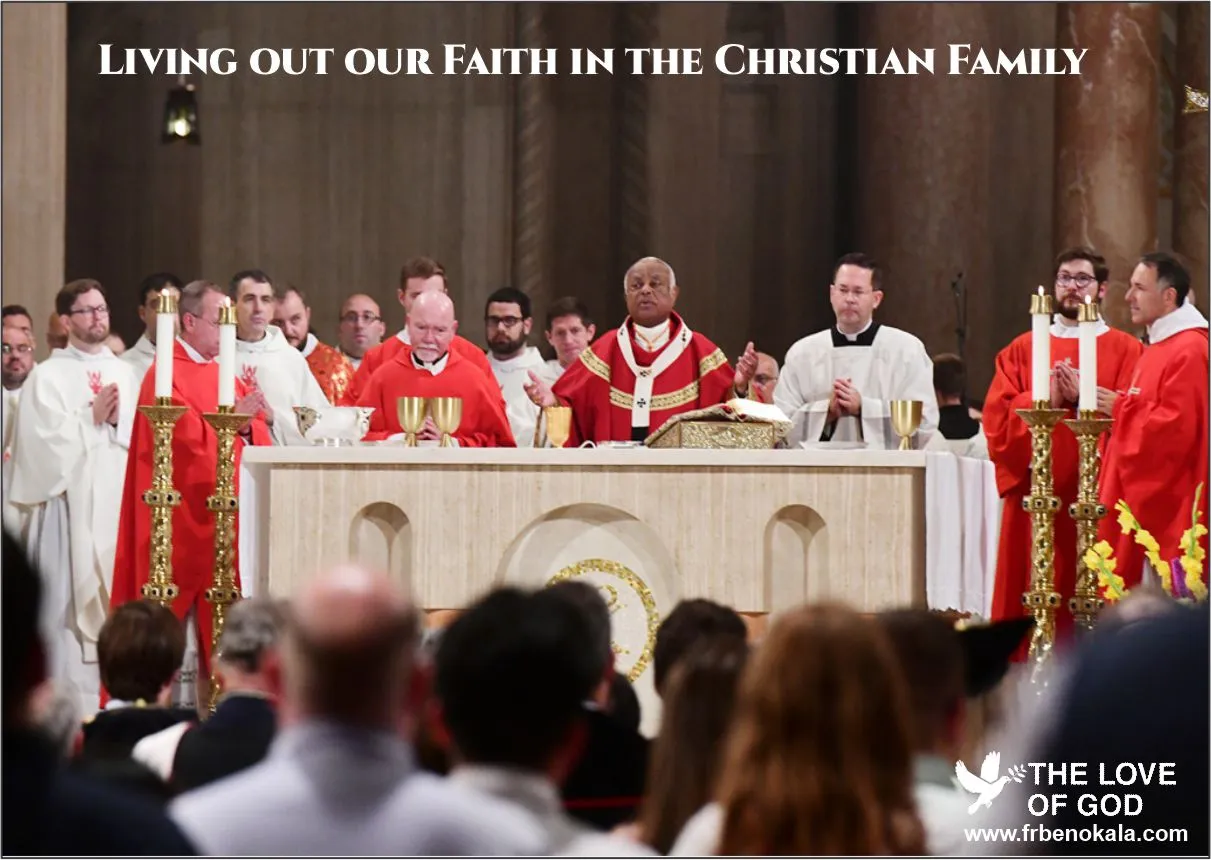Homily of the 10th Sunday in Ordinary Time, Year B
First reading: Genesis 3:9–15; Second reading: 2 Corinthians 4:13-5:1; Gospel: Mark 3:20–35.
Imagine a pebble tossed into a still pond. The ripples spread outward, reaching every corner. The family is like that pond, and our actions are the pebbles. A single choice can create ripples of impact, affecting not just ourselves but those close to us and even our wider community. Similarly, our families are like intricate spiderwebs, and even the tiniest vibration can travel far and wide. This interconnectedness reminds us that our choices, for better or worse, ripple outward, impacting the lives of those we hold dear.
Hence, this homily for the 10th Sunday of Ordinary Time, Year B, presents us with a thought-provoking message about family and faith. The readings challenge us to move beyond traditional definitions of family and embrace a deeper understanding of God’s all-encompassing love.
Jesus Christ redefines the Christian Family Beyond Blood Ties

The gospel reading of today depicts a scene where Jesus’ relatives arrive, concerned about His well-being. However, Jesus responds by redefining family in terms of faith, stating, “Whoever does the will of God, he is my brother, and sister, and mother” (Mark 3:35). This challenges the conventional understanding of family based solely on blood ties.
Jesus Christ emphasizes that those who follow God’s path and do His will become part of His true family. This message is significant because it fosters a sense of belonging and acceptance within the Christian community, regardless of one’s background or origin (Acts 10:34). It expands the definition of family to encompass those who share a faith in God, creating a more inclusive and meaningful understanding of Christian fellowship. This is one of the reasons why Christians call themselves brothers and sisters in Christ.
God’s Family and the Struggle between Good and Evil

In a world where the physical and spiritual intertwine, the readings beckon us to peer beyond the veil of the known and find solace in God’s presence. The first reading recounts the story of Adam and Eve’s disobedience in the Garden of Eden. Their actions resulted in the separation of the entire humanity (God’s family) from God. This narrative is a timeless reflection of the human condition. We too often find ourselves entangled in the struggle between good and evil, between the divine will and our human weaknesses.
The serpent’s cunning reminds us of the subtle ways in which temptation can infiltrate our lives, leading us away from God’s love and truth. Yet, even in the midst of this struggle, God’s voice calls out to our Christian family, just as He called out to Adam and Eve. His question, “Where are you?” is not one of condemnation but of invitation. It is a call to return to Him, to acknowledge our failings, and to seek His mercy and forgiveness.
The Spiritual Effect of Disobedience

What happens when we fall short of God’s glory through disobedience as Christians? Does it affect us alone, or does it have an effect on our Christian family? For instance, if one commits any physical offense, definitely it impacts the individual, their immediate family, and their spiritual community.
Ipso facto, since the Christian community is synonymous with the body of Christ, our disobedience, whether individually or collectively, has multifaceted effects. The extent and nature of these effects can vary depending on the context and the nature of the offense. Let’s explore some of the consequences.
1. Falling Short of God’s Glory Through Disobedience:
In many religious traditions, particularly within Christianity, falling short of God’s glory through disobedience is considered as sin. Sin is seen as a separation from God and can have both personal and communal consequences. As the scripture says, “For all have sinned and fall short of the glory of God” (Romans 3:23).
2. Effects on the Individual and Family:
Sin can affect both the individual and their family. For example, in the Old Testament, the consequences of sin often extended to one’s family and community (the story of Achan in Joshua 7). Similarly, in our contemporary society, if someone commits a crime or immoral act, it can bring shame or stigma to their family, affecting relationships and social standing.
3. Physical Offense and Family Stigma:
When someone commits a physical offense (e.g., a crime), the repercussions can indeed extend beyond the individual to their family. This can include social stigma, emotional distress, and even legal consequences that impact the family unit.
4. Spiritual Family:
In a spiritual context, particularly within Christianity, the concept of a spiritual family refers to the community of believers, often called the Body of Christ. Sin within this community can affect the spiritual health and unity of the group. As the scripture says, “If one part suffers, every part suffers with it; if one part is honoured, every part rejoices with it” (1 Corinthians 12:26). Jesus Christ gives a similar explanation to this in the parable of the lost sheep (Matthew 18:12–14). Therefore, individual actions can have communal spiritual consequences.
Living out Our Faith in the Christian Family

Original sin strained humanity’s relationship with God, as exemplified by Adam and Eve’s disobedience. However, God’s love offers redemption to humanity through the sacrificial death of Jesus Christ. Ever since Christ’s death, the devil has continued to tempt believers to stray from God’s will, weakening the Christian family.
St. Paul reminds us to prioritize heavenly things over earthly attachments so as to avoid falling into temptation (2 Corinthians 4:18). As a Christian family, we can demonstrate our love for God by following His commandments. Even during our trials, we should persevere because our momentary sufferings produce an eternal weight of glory (2 Corinthians 5:1). This calls for a strong faith in God, trusting in His unseen plan and the everlasting joy He promises.
Conclusion
Dearly beloved, the Christian family is a conglomeration of believers all over the world regardless of one’s background or origin. Moreover, the readings of today offer us a powerful message about family and faith. This challenges us to embrace a broader definition of family that extends beyond blood ties, welcoming those who share our faith in God.
Furthermore, the readings remind us of the ever-present struggle between good and evil but also emphasize God’s unwavering love and forgiveness. By living according to God’s will, we strengthen our connection with our spiritual family and contribute to the well-being of our Christian community.
Prayer:
I pray that the Almighty God opens your heart to the true meaning of Christian family beyond blood ties. May the Holy Spirit help you to resist temptations and live according to God’s will, through Jesus Christ our Lord, Amen.
Peace of Christ be with you…
Rev. Fr. Benjamin Okala, C.S.Sp.




